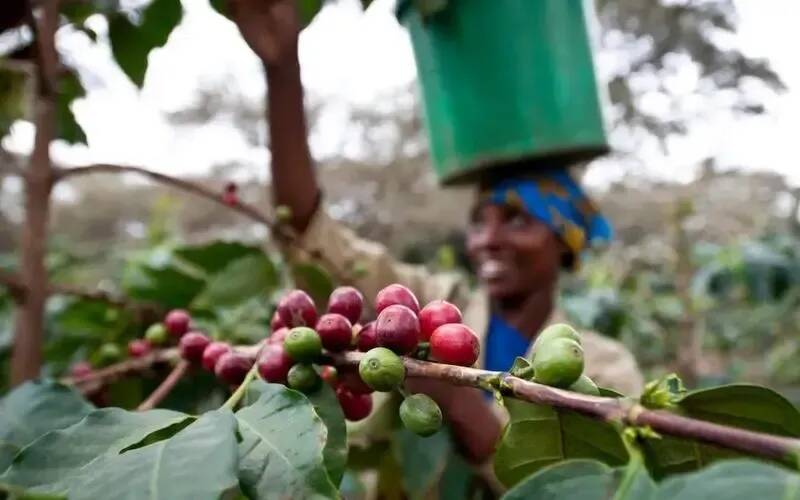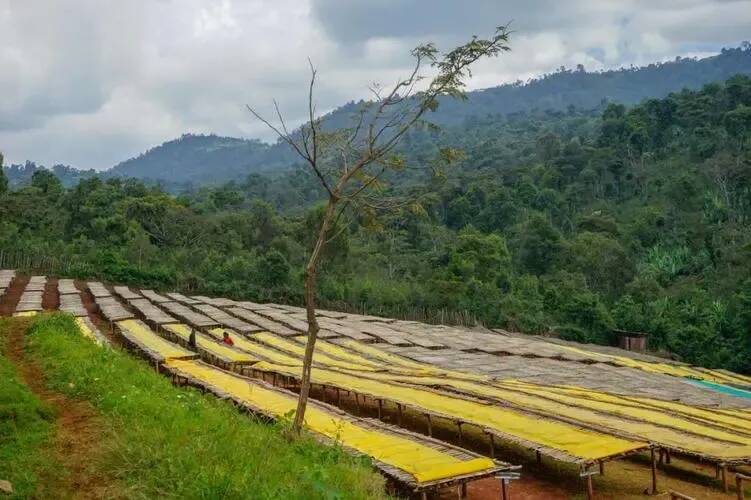Ethiopia's coffee exports reached 250,000 tons in May! But civil war will affect future coffee exports
Recently, the Ethiopian Coffee and Tea Authority (ECTA) released Ethiopian coffee exports in May. According to reports, Ethiopian coffee exported 43,481.02 tons in May, exceeding the target by 105%. In addition, strong exports drove revenue growth, generating US$209.54 million, exceeding 107% of planned revenue. Compared with exports in the past two fiscal years, the May data improved.
In the first 11 months of the fiscal year (starting in July 2023), Ethiopia's cumulative coffee exports were 252,466.98 tons and its foreign exchange income was 1.208 billion US dollars. In the previous fiscal year, Ethiopia exported about 240,000 tons of coffee and earned US$1.3 billion in foreign exchange earnings. ECTA said that this fiscal year is expected to be higher than the previous fiscal year's revenue of US$1.3 billion and break the record.

In Ethiopia, the main export destination for coffee is Saudi Arabia, followed by South Korea and the United States. The remaining top ten major destinations include Germany, Japan, Belgium, China, Sudan, United Arab Emirates and Italy. Moreover, China's coffee imports to Ethiopia are constantly growing, with a total import volume of 154,000 tons of coffee in 2023. The top five importing partners are Brazil, Ethiopia, Colombia, Malaysia, Vietnam, and Indonesia, with Ethiopia ranking second.
Regarding the current export situation, the Director of the ECTA Authority thanked all stakeholders in the industry for their contributions and was optimistic that continued efforts and cooperation will achieve better results in the future.

However, some industry insiders are not optimistic. The main reason is that Ethiopia is still in civil war. As early as August 2023, the Fano forces in Amhara Region launched a conflict with the federal government. The conflict has not been resolved and continues to this day.
According to local media reports, the Ethiopian government deployed as many as 90000 civilian recruits to the Amhara region on May 30 this year. Sources said that the Ethiopian government plans to carry out extensive military operations in the region in the next ten days., eliminate the Fano troops in the region within two weeks.
However, Ethiopia is a landlocked country, and its exports and imports rely on the ports of neighboring Djibouti. Ethiopia's export and import transportation routes are on the edge of the military operation zone. The route to the port is a high-risk area that may be affected, and due to the war, some areas will block the route. This will seriously affect the country's transportation industry and the reduction of imports and exports will greatly affect the country's economy. Even if they arrive at the port, they are also affected by the surrounding Red Sea crisis in terms of shipping, which restricts the use of ships for coffee exports.
In addition, after the end of this military operation, it is unknown what will happen, the damage to regional roads, and subsequent political changes. Therefore, it is not optimistic about the future coffee export situation, and local practitioners have lost most of their enthusiasm.
Important Notice :
前街咖啡 FrontStreet Coffee has moved to new addredd:
FrontStreet Coffee Address: 315,Donghua East Road,GuangZhou
Tel:020 38364473
- Prev

Eat coffee like toothpaste?! The main focus is the essence
▲ Click to pay attention| Daily Boutique Coffee Culture Magazine Coffee Workshop In order to meet the needs of coffee lovers to drink coffee anytime and anywhere, there are more instant coffee that is convenient, fast and easy to brew on the market. However, powder-type instant coffee also needs to be brewed with hot water. For some outdoor workers, boiling hot water is sometimes not a problem.
- Next

Introduction to Elida, Donkey and Luito Estate, the best producers of Panama BOP in 2024
Panama coffee has a high reputation in the global coffee market. In addition to having the well-known rose summer varieties, it is also inseparable from the Panama Specialty Coffee Association (SCAP), which designed and organized BOP (Best Of Panama). Known as the best Panama). in 1
Related
- What grade does Jamaica Blue Mountain No. 1 coffee belong to and how to drink it better? What is the highest grade of Blue Mountain coffee for coffee aristocrats?
- What are the flavor characteristics of the world-famous coffee Blue Mountain No. 1 Golden Mantelin? What are the characteristics of deep-roasted bitter coffee?
- Can I make coffee a second time in an Italian hand-brewed mocha pot? Why can't coffee be brewed several times like tea leaves?
- Hand-brewed coffee flows with a knife and a tornado. How to brew it? What is the proportion of grinding water and water temperature divided into?
- What is the difference between Indonesian Sumatra Mantinin coffee and gold Mantinin? How to distinguish between real and fake golden Mantelin coffee?
- What does bypass mean in coffee? Why can hand-brewed coffee and water make it better?
- Unexpected! Ruixing Telunsu lattes use a smoothie machine to foam milk?!
- % Arabia's first store in Henan opens into the village?! Netizen: Thought it was P's
- Does an authentic standard mocha coffee recipe use chocolate sauce or powder? Mocha Latte/Dirty Coffee/Salty Mocha Coffee Recipe Share!
- What is the difference between Vietnam egg coffee and Norway egg coffee? Hand-brewed single product coffee filter paper filter cloth filter flat solution!

